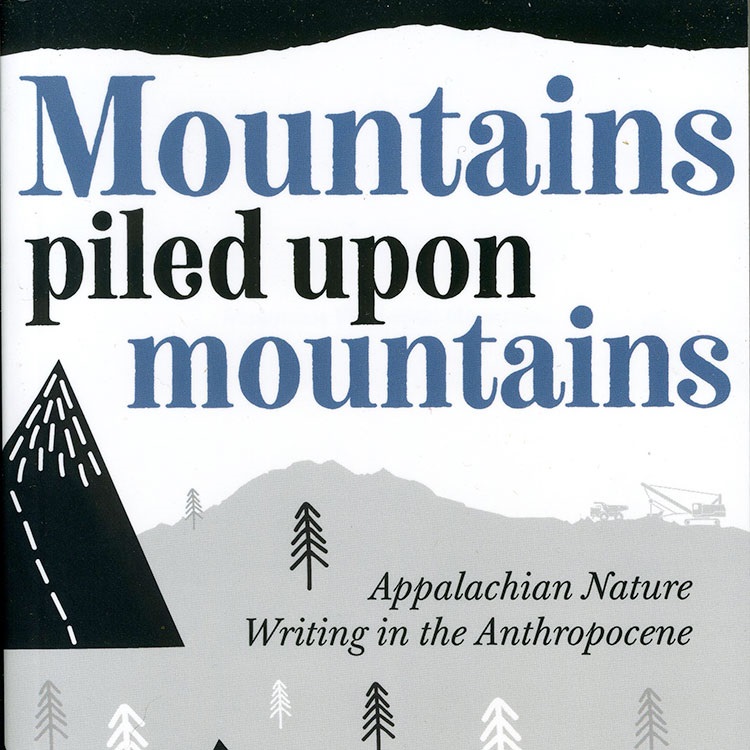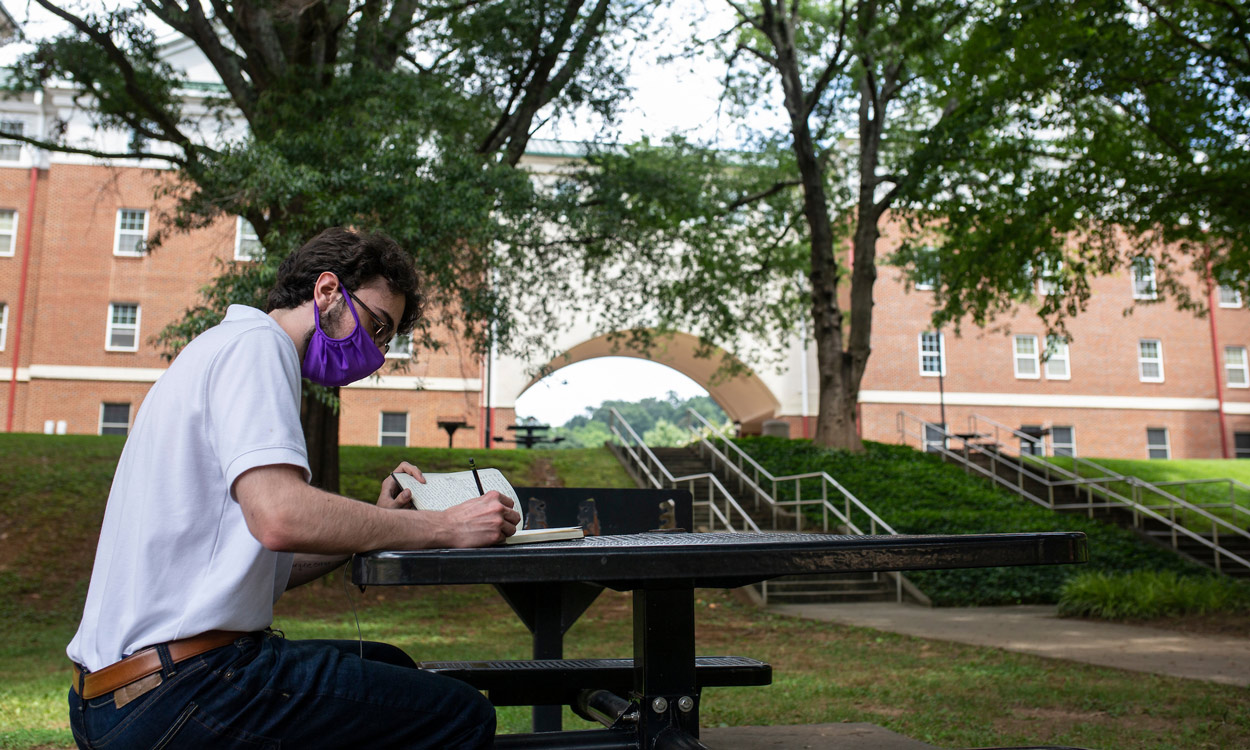Mountain anthology edited by English instructor tackles contemporary Appalachian issues

Jessica Cory
The Appalachians are among the most biologically diverse mountain regions on the planet. A new collection of nature writing, edited by Jessica Cory, a Department of English instructor at Western Carolina University, presents a similarly diverse set of views and voices from Appalachia.
“Mountains Piled Upon Mountains: Appalachian Nature Writing in the Anthropocene” is a series of essays, fiction and poetry that look at natural, environmental and ecological struggles of Appalachia, including Western North Carolina, as seen by 49 influential authors. “Anthropocene” is a description for the current geological period in which human activity has become the dominant influence on climate and the environment.
 The book has received critical notice for its contemporary look at the complex issues
facing Appalachia, such as fracking, water quality and pollution sources, mountaintop
removal and deforestation. A recent segment of National Public Radio’s “The State
of Things” used the book as an examination of how nature writing can inspire change,
while newspaper and magazine reviews point to its spirited writing in various genres.
The book has received critical notice for its contemporary look at the complex issues
facing Appalachia, such as fracking, water quality and pollution sources, mountaintop
removal and deforestation. A recent segment of National Public Radio’s “The State
of Things” used the book as an examination of how nature writing can inspire change,
while newspaper and magazine reviews point to its spirited writing in various genres.
Recent political events provided an impetus for the collection, Cory said. “So much of the depiction of Appalachia was as this monolith, where everybody looks the same, talks the same, it all comes back to those old, tired tropes of ‘it’s just a bunch of backwoods, backwards rednecks living in the mountains’ kind of thing,” she said.
“One of the things I wanted to do with this collection was really show how diverse this region truly is, not just in its topography, which is evident in the pieces about farming versus pieces about mountaintop removal, but also in the voices it collects. We have Native American voices, African-American voices, women’s voices, activists, all these folks, and I really wanted to capture the diversity of the region and show we’re not all just the same here.”
Much of Appalachian nature writing is localized and focused on a particular state, area or community, Cory said. “I can see how people would focus on the microcosm, but I wanted something that spanned all of Appalachia, written by Appalachian authors,” she said.
Cory wrote the introduction and contributed an essay, “Uprooted,” about generational farming and, ostensibly, about family relationships and her own grandfather. She will present a reading at Malaprop’s Bookstore in Asheville on Thursday, Sept. 5, at 6 p.m. The event is free and open to the public, with an opportunity to purchase the book and have it signed. Cory will be joined at Malaprop’s, located 55 Haywood St., by fellow contributors Wayne Caldwell, winner of the Thomas Wolfe Literary Award and author of the critically acclaimed novel “Cataloochee”; local environmentalist and writer Thomas Rain Crowe; Gene Hyde, head of special collections and archives at the University of North Carolina Asheville; and Ellen J. Perry, an author and women’s rights activist who teaches at Asheville-Buncombe Technical Community College.

Wayne Caldwell
Other contributors include the late Kathryn Stripling Byer, North Carolina poet laurate from 2005 to 2009; Chris Bolgiano, author of “Living in the Appalachian Forest: True Tales of Sustainable Forestry” and articles for The New York Times, Washington Post and Audubon; poet and essayist Michael McFee, winner of the North Carolina Literary and Historical Society Award; and novelist Jim Minick, whose memoir, “The Blueberry Years,” won the Best Nonfiction Book of the Year from the Southern Independent Booksellers Association.
The title “Mountains Piled Upon Mountains” comes from the writings of the naturalist William Bartram. In “Travels,” one of the earliest books about Southern Appalachia, Bartram describes the vistas as seen from Wayah Bald in Macon County as he traveled through Western North Carolina in the late 1700s.
WCU students, faculty and staff will be engaging in discussions, programs and events on issues such as climate change, clean water, species protection, ecological initiatives and renewable energy over the coming months as part of the 2019-20 interdisciplinary learning theme “Sustainability and the Environment.”
“(The book) ties into the campus theme really well,” said Cory. “There’s a whole section on preservation, conservation and sustainability, with writers sharing examples of efforts that worked and didn’t work.”

